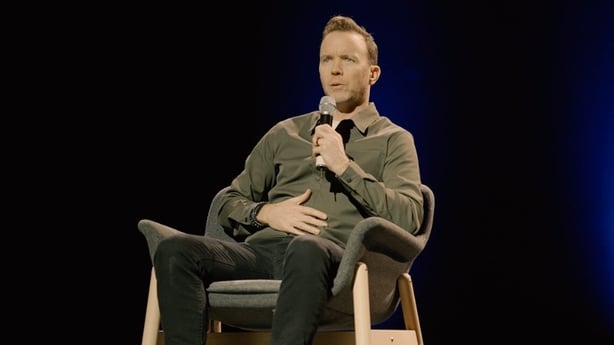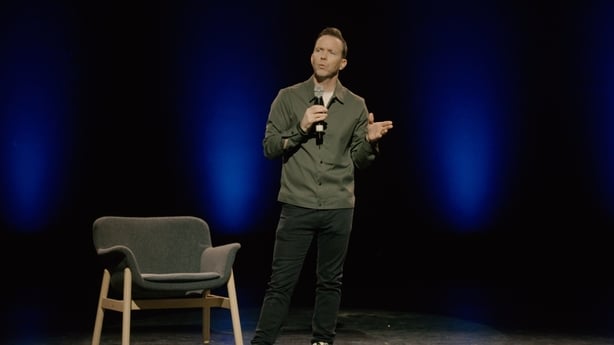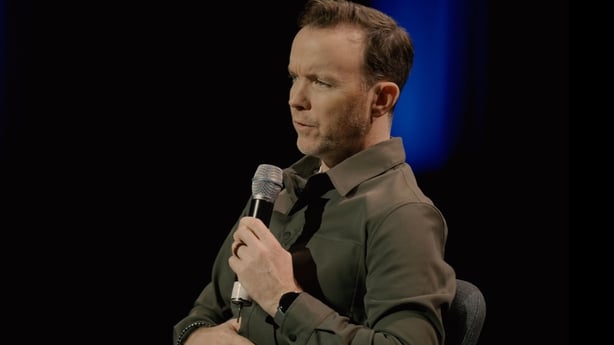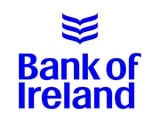As part of Bank of Ireland's 'Money Smarts’ series, comedian and presenter Dermot Whelan shares his journey to enlightenment through meditation, aiming to inspire others to take action in reducing their stress levels. Now a qualified meditation teacher, his tips for dealing with anxiety serve as a great starting point for anyone looking to manage the pressures associated with everyday life.
Dermot mentions that dealing with stress and anxiety can be an isolating experience, and that how we react to it is crucial. His journey to successfully managing stress was a colourful one. It was a wake-up call in the form of sitting in the back of an ambulance breathing into a paper bag due to hyperventilation that inspired him to take action. He’d been suffering from work stress, lack of sleep and a hectic lifestyle that had contributed to a complete overload of anxiety.

Shortly after this, Dermot delved into the science behind meditation and started trying it out for himself. Over time, he began to see positive changes, and is now adamant that people from all walks of life can have the same outcome of reducing stress if they simply work on finding the right tools to cope with being overwhelmed.
Entering adolescence brings many firsts with it. For most, it can lead to their first time dealing with stress and anxiety. Pressure from things like homework, exams, friendships, social media and even money can pile up, and if you haven’t got a healthy coping mechanism to rely on in trying times, you’ll soon be feeling the weight of it all.
Dermot explains how a practice like meditation can play a key role here, bringing a sense of calm and control to our thoughts. At its core, "meditation is just focusing your mind on one thing", he explains. When the mind wanders, you simply bring it back to focus. Through this focus, you can calm your thoughts, especially around the more stressful things in life. With over 60,000 - 80,000 thoughts going through the human brain each day, finding singular focus isn’t without its challenges. But the benefits are evident.

Learning meditation early in life puts you on a clear path to face and conquer uncertainty as you enter adulthood - and it’s never too late to start.
Dermot lists off the countless benefits of meditation - lower blood pressure, heart rate and stress hormone levels, less anxiety and depression, increased optimism, improved sleep, longer attention span, improved focus and a better mood.
Stress can become a crippling thing if it’s not managed correctly. It affects us all differently, but with the right approach, can be successfully managed before it gets out of hand.
According to the HSE, these tips can help with everyday anxiety:
-
If you have a stressful day or week coming up, plan ahead.
-
If a task seems overwhelming and difficult to start, try breaking it down into smaller parts. Complete each part and then move on to the next part.
-
Focus on things you can control, rather than things you cannot control.
-
Each day, think about what went well and write down three things you're grateful for.
-
If you feel stressed, it can help to talk to a friend or family member about how you feel.

Dermot mentions a Harvard study that was done over ten years ago. It required subjects to meditate for thirty minutes a day for two months. Their brains were scanned at the end of the process and the results were highly impressive. The amygdala part of the brain - also known as the ‘fear centre’ - had shrunk, while the parts of the brain that are responsible for memory, self-awareness, empathy and logical thinking had all grown and strengthened as a direct result of beginning and continuing a meditation routine.
If you’re keen to learn more about meditation and want to try out some simple exercises, watch the video to let Dermot take you through the ‘Belly Breathing’ and ‘16 Second’ techniques to kickstart your journey towards lower stress levels.
For more information on financial literacy and the Bank Of Ireland Money Smarts programme click here.
If you have been affected by issues raised in this story, please visit: www.rte.ie/helplines.
